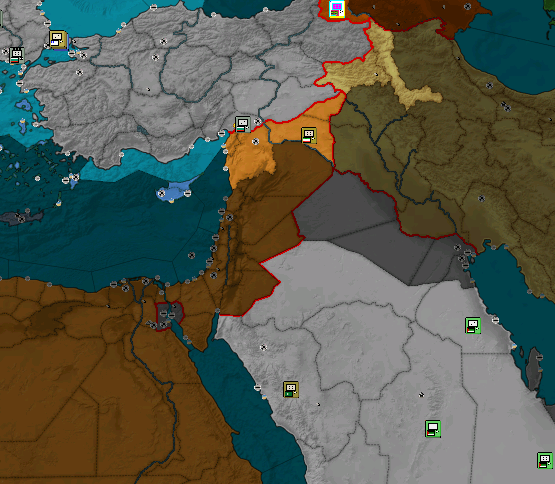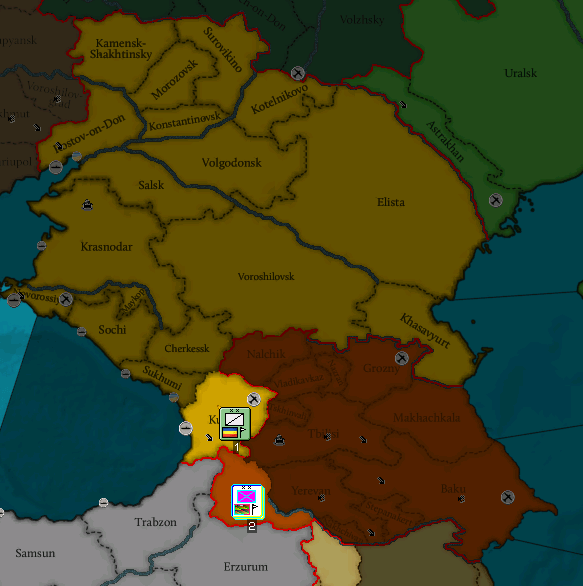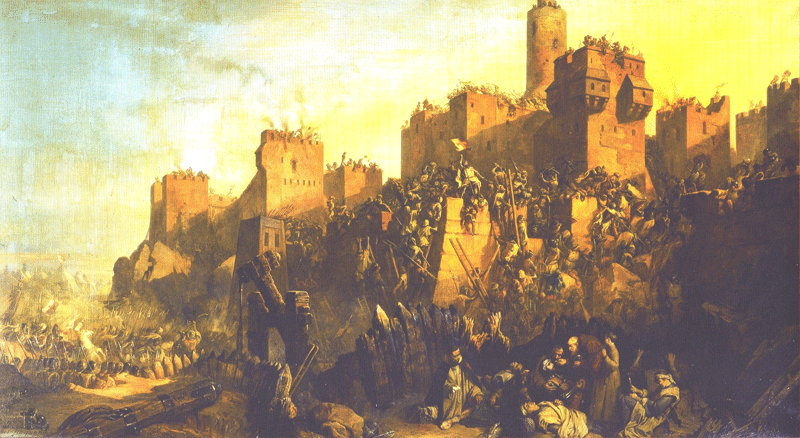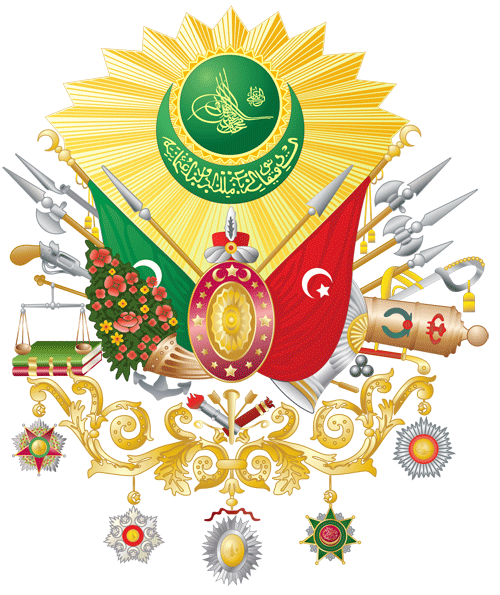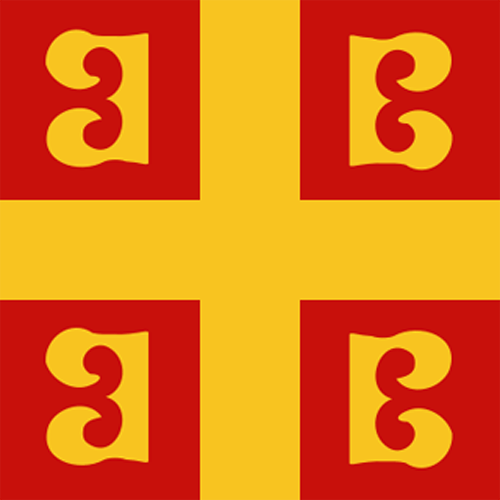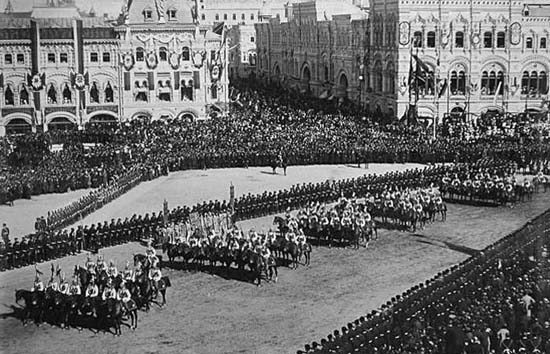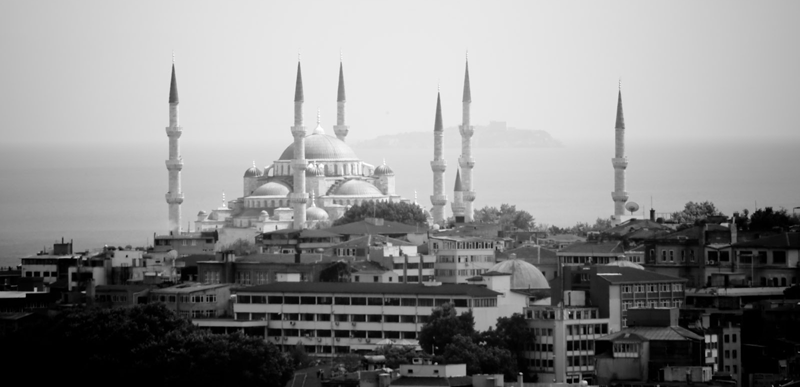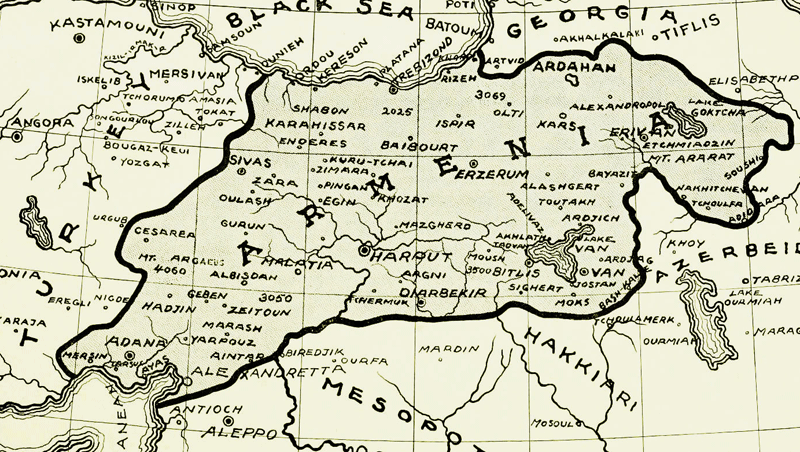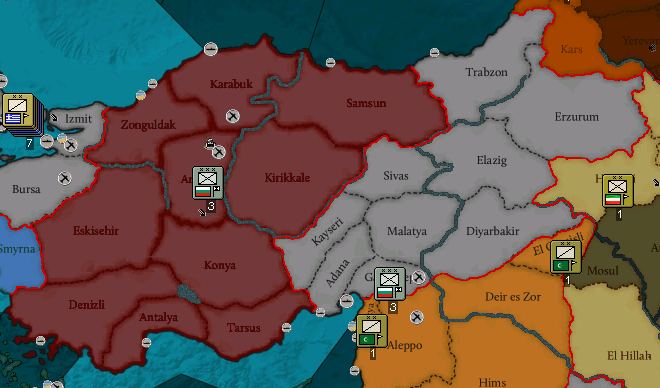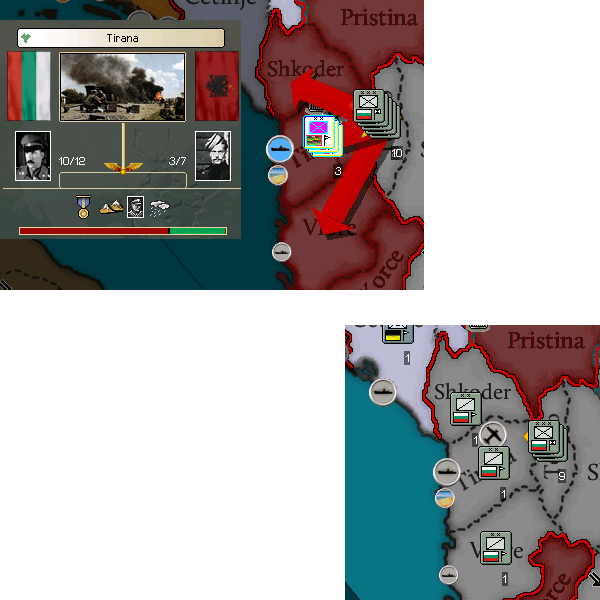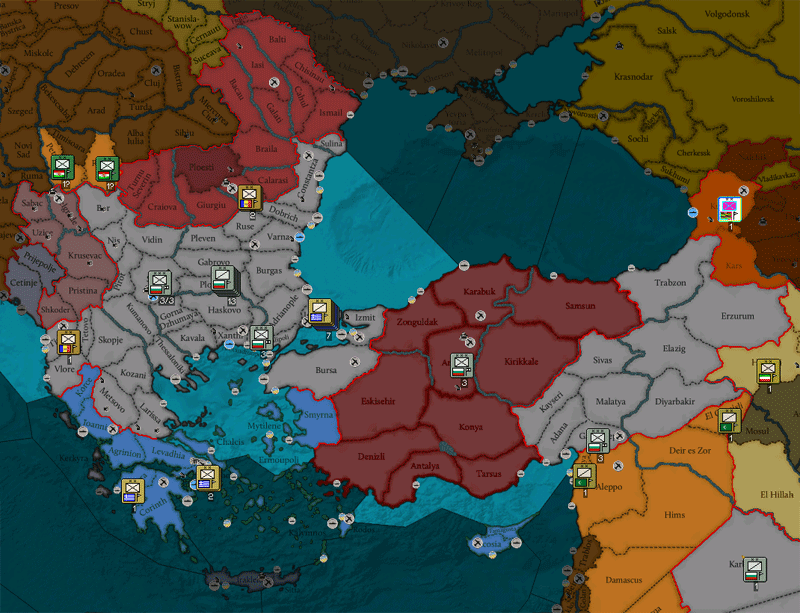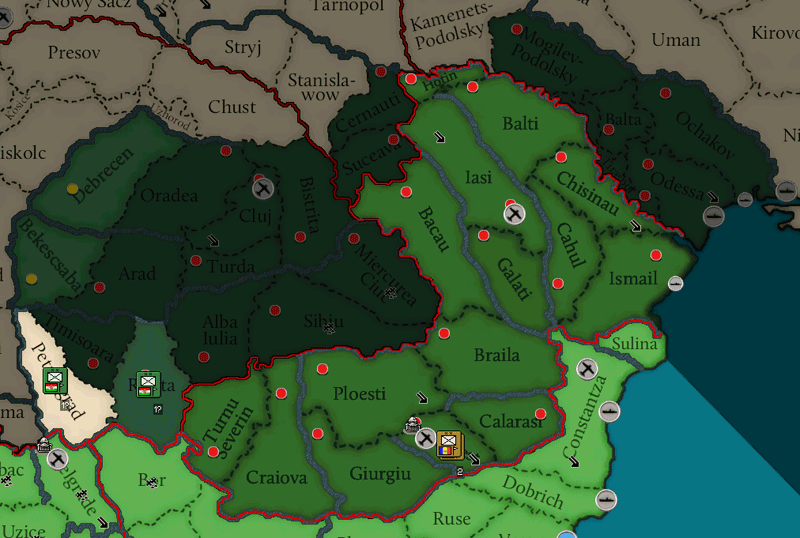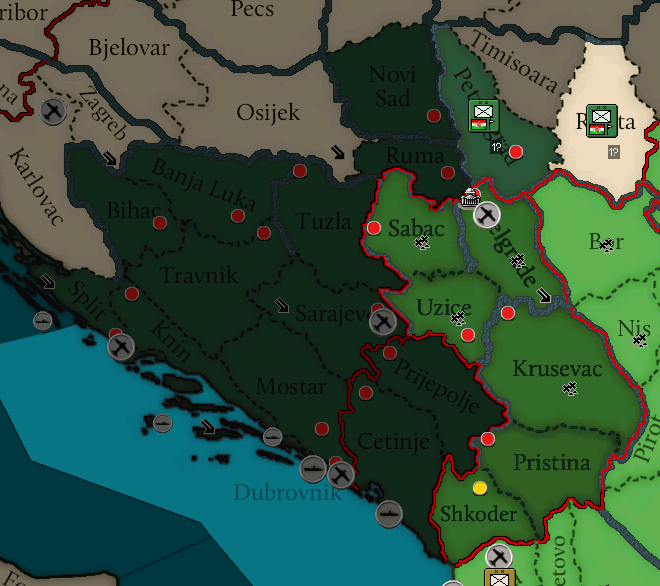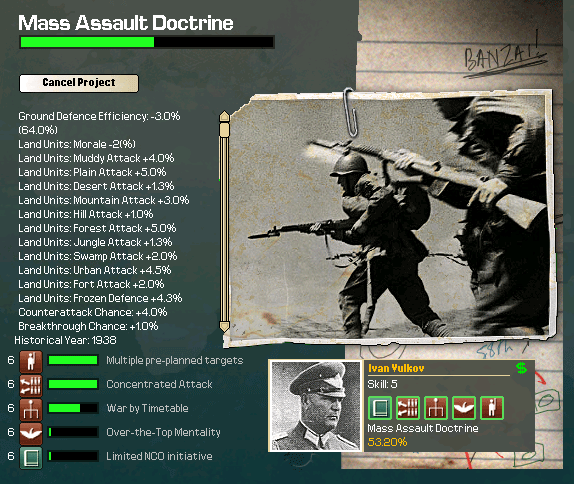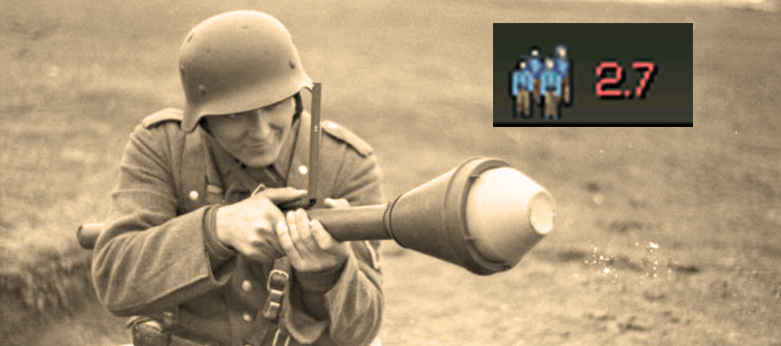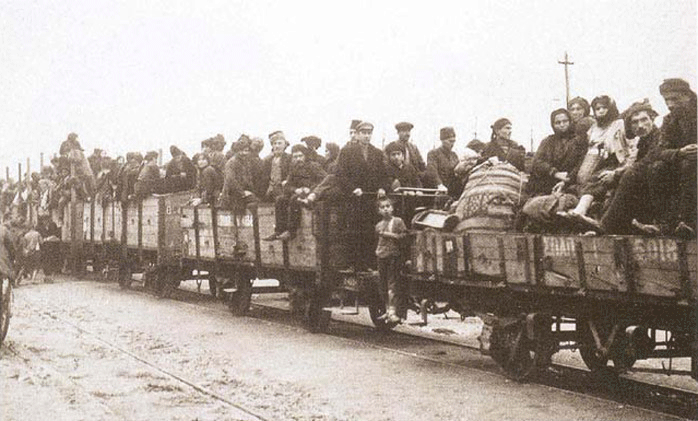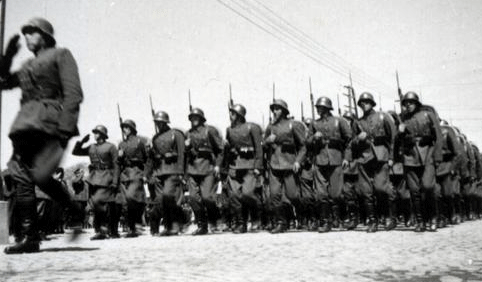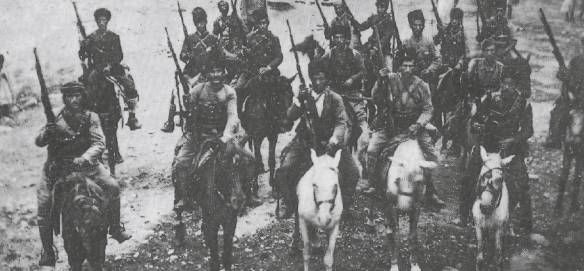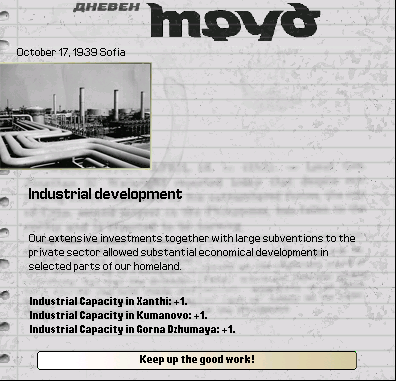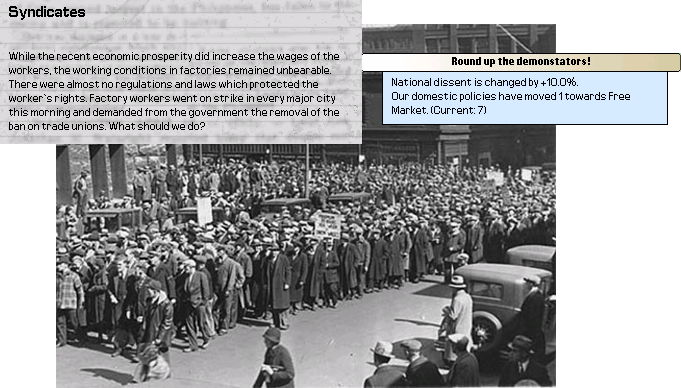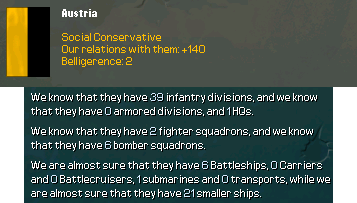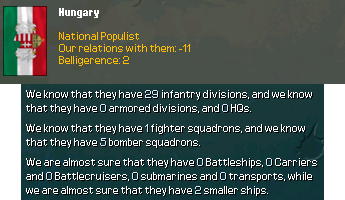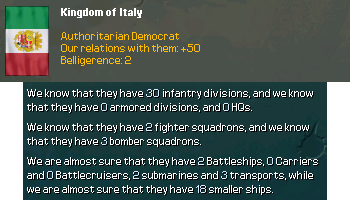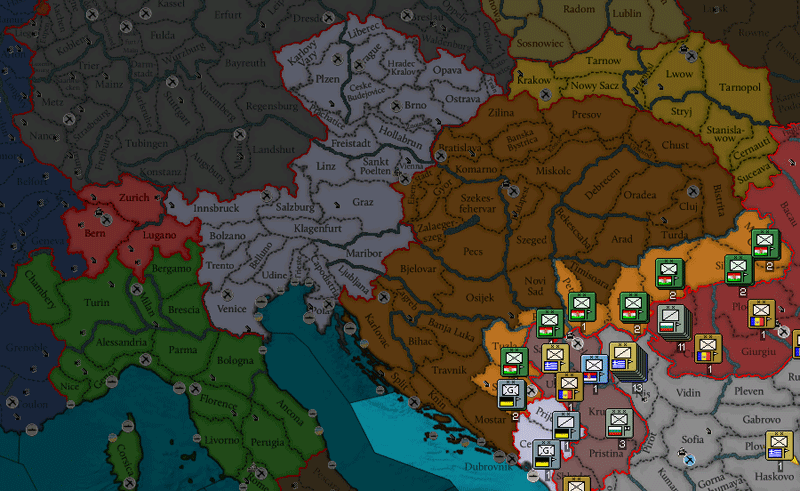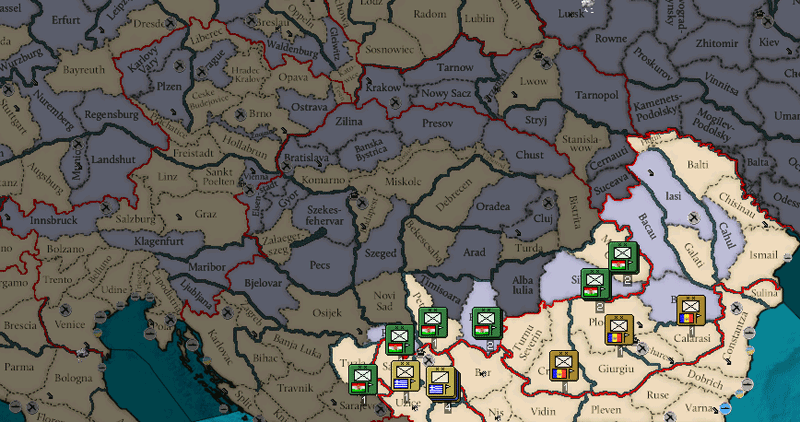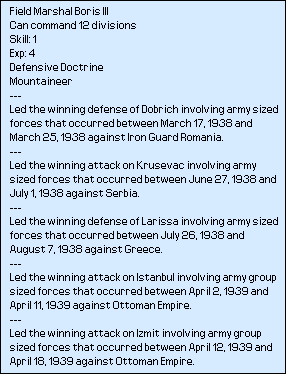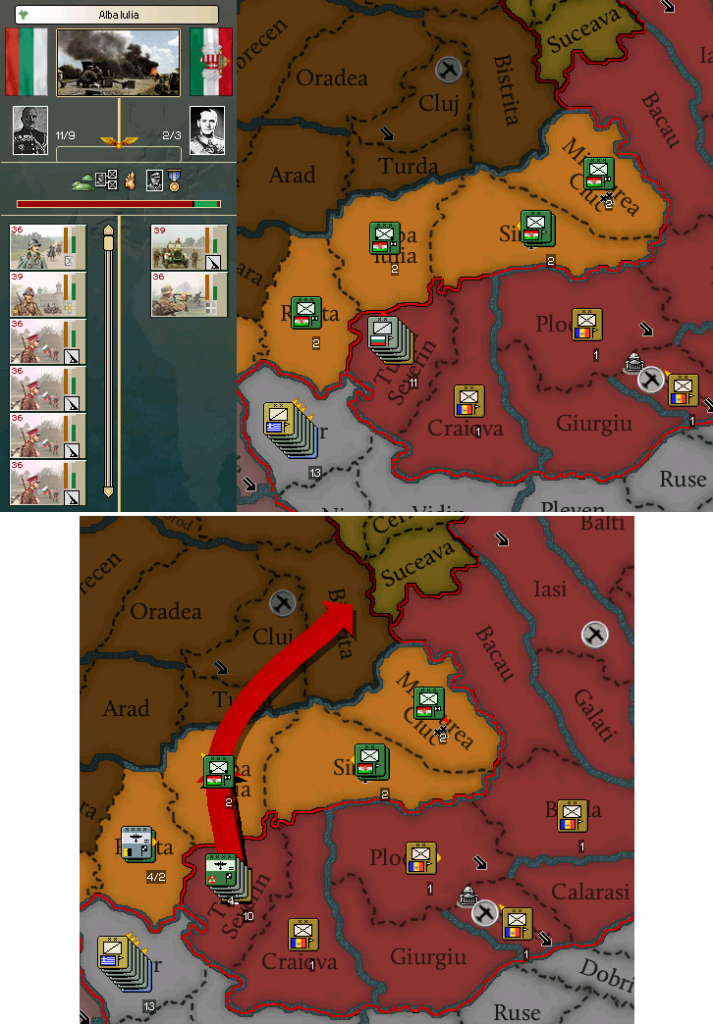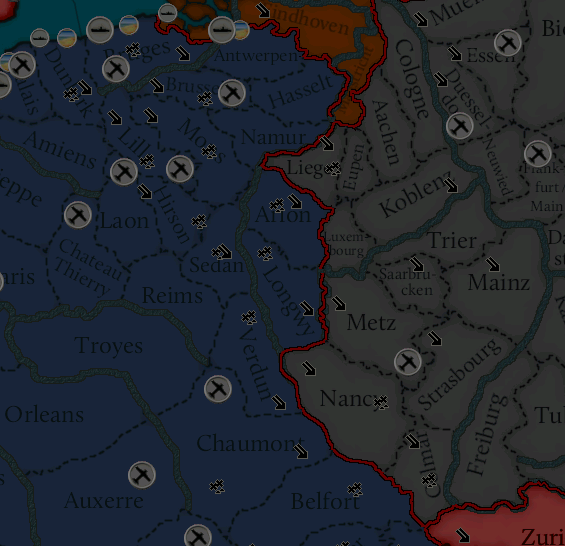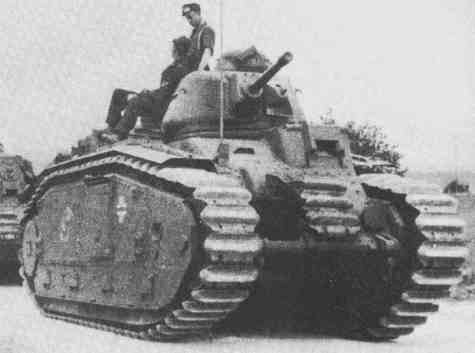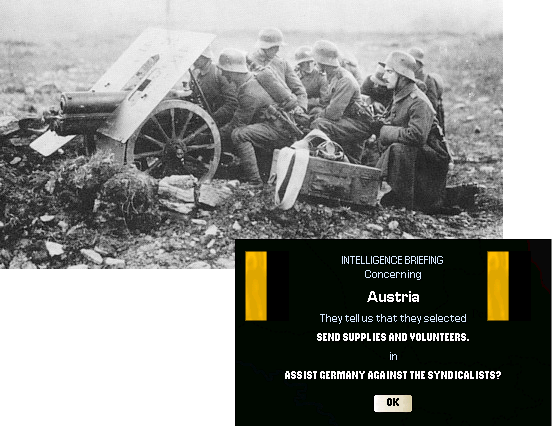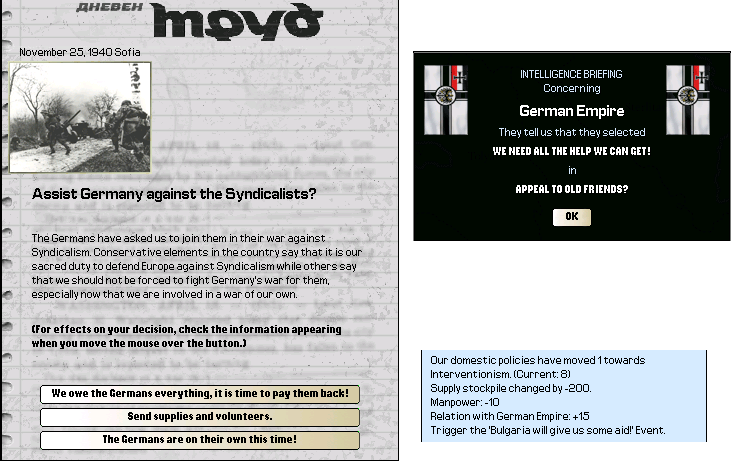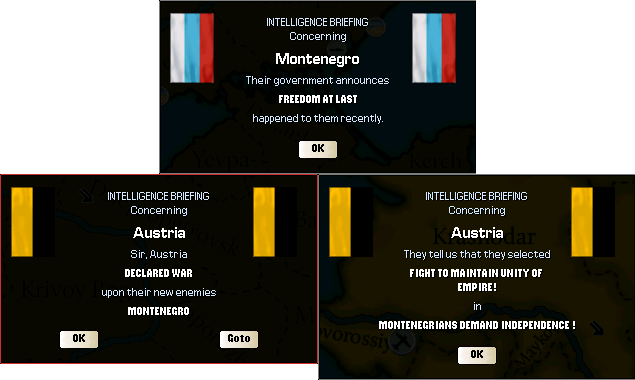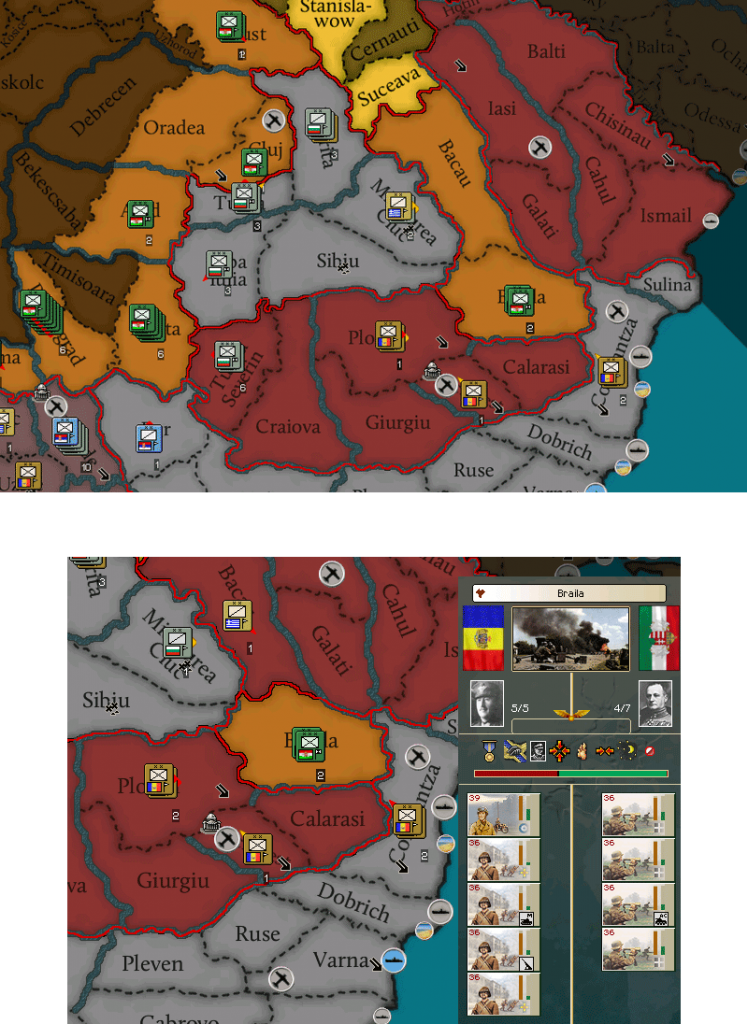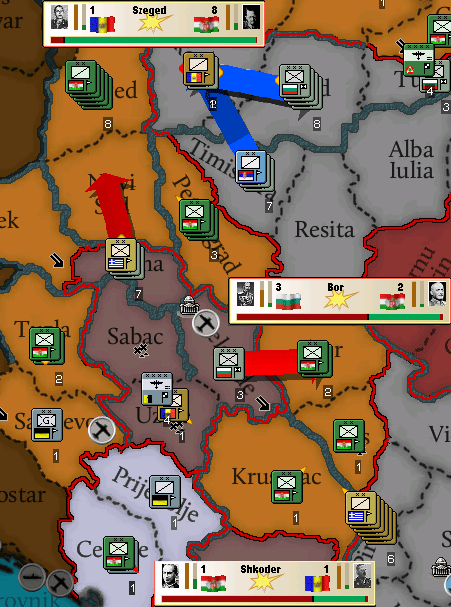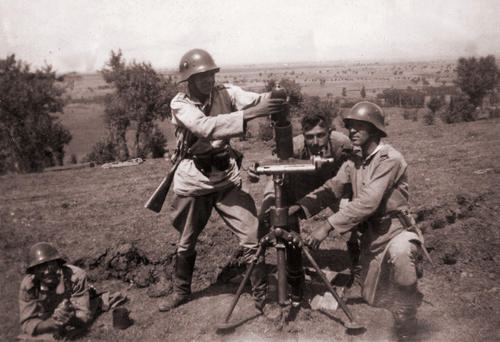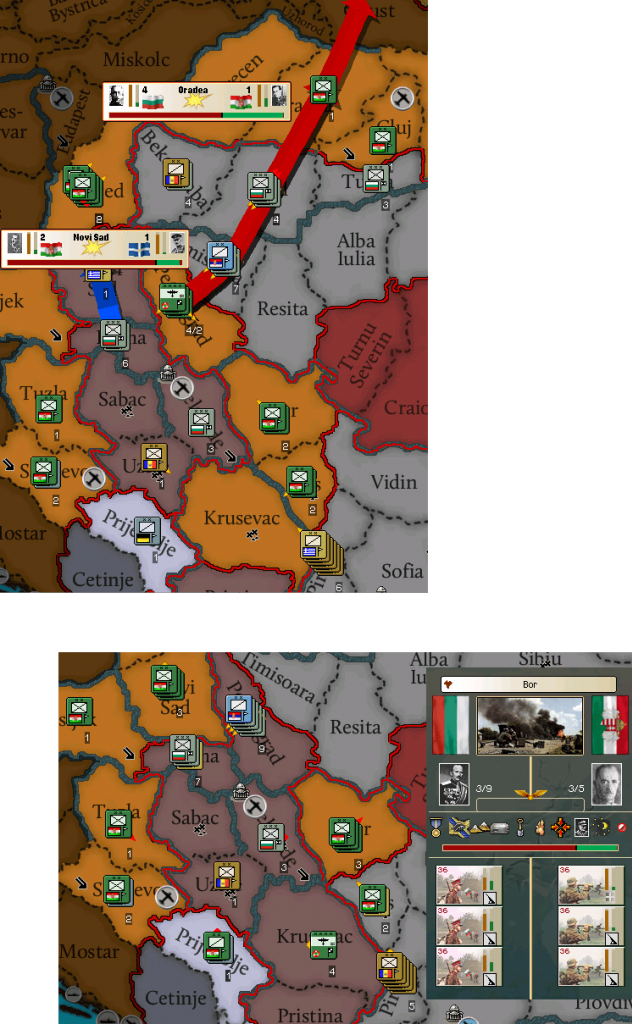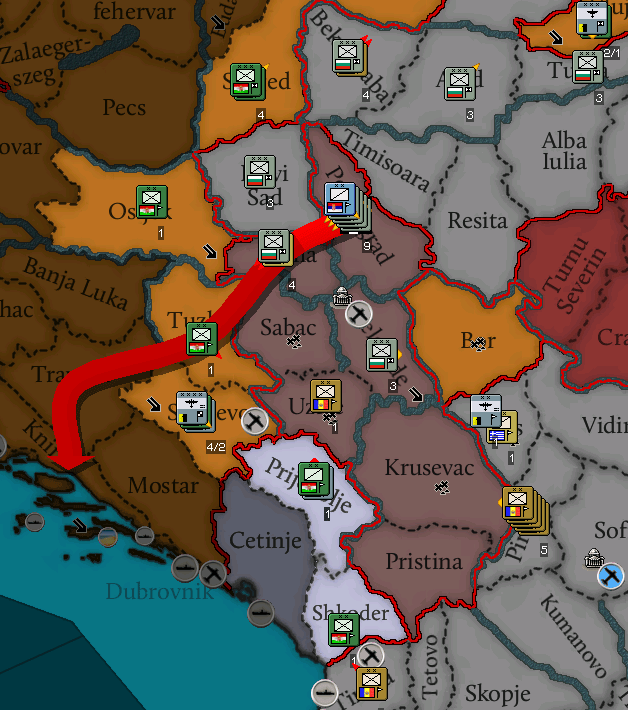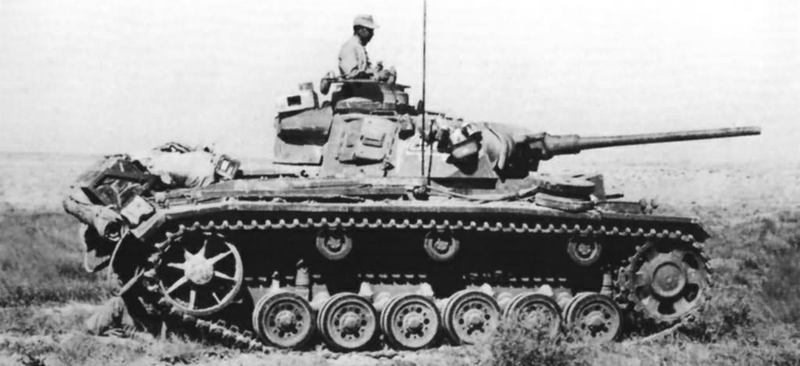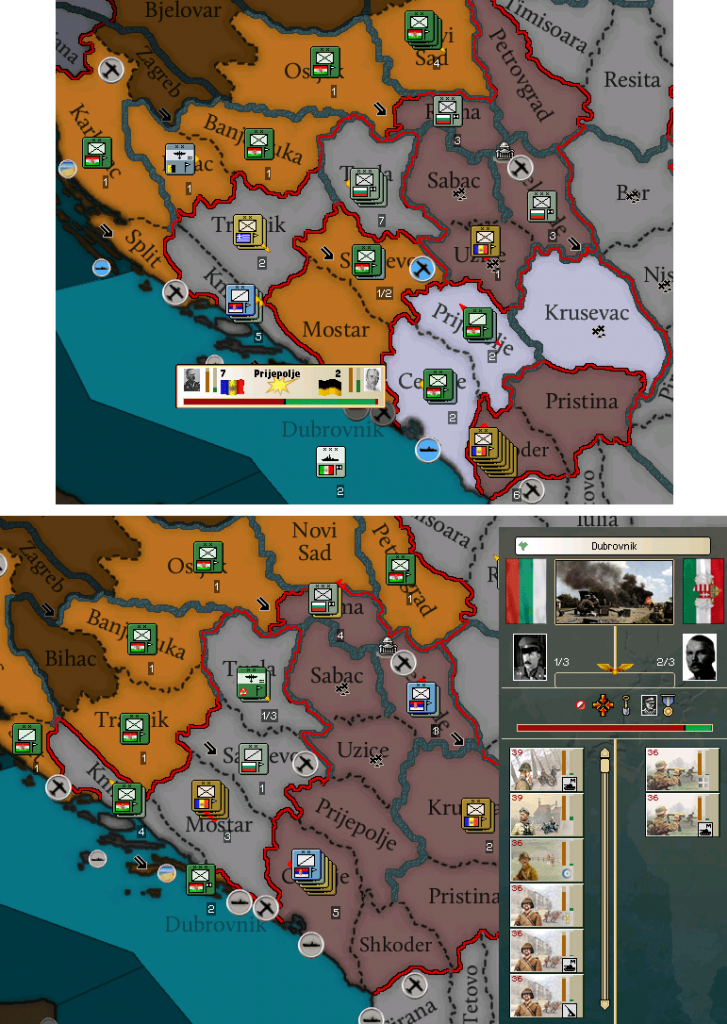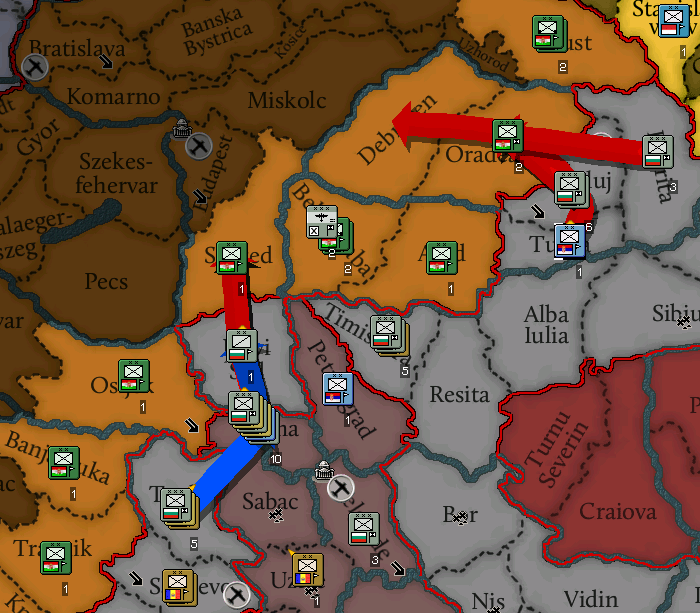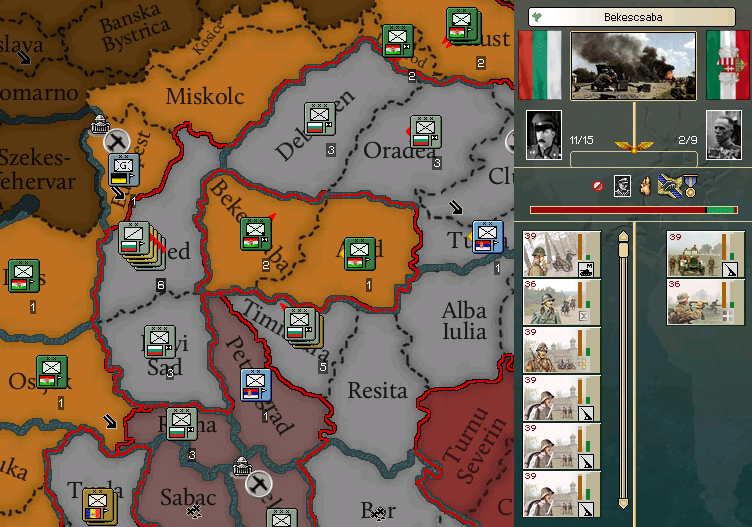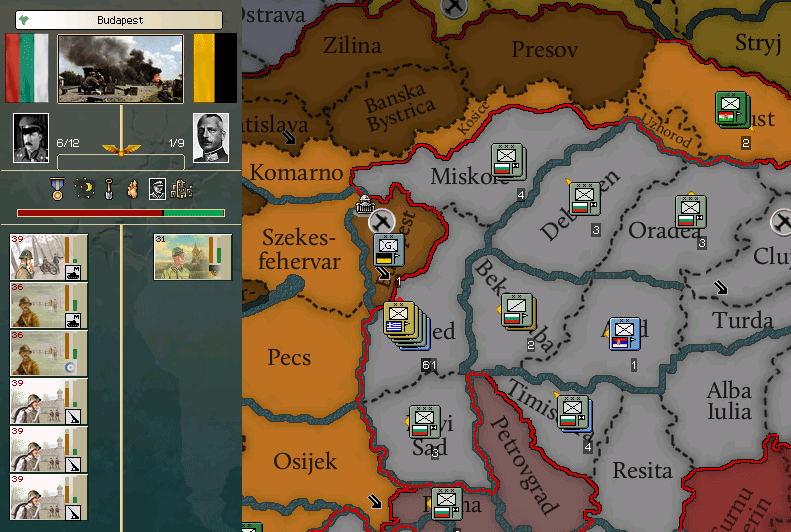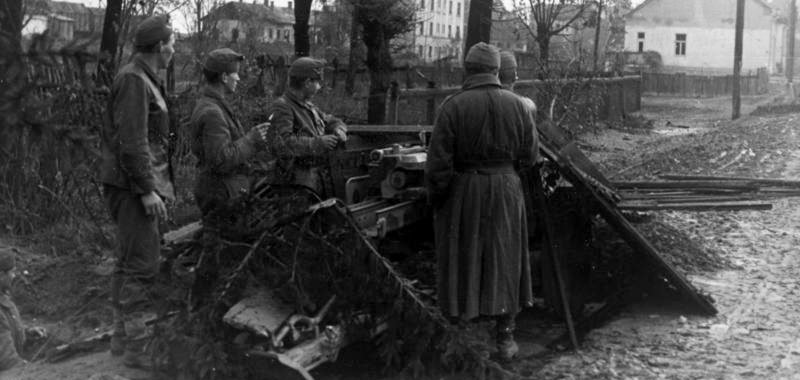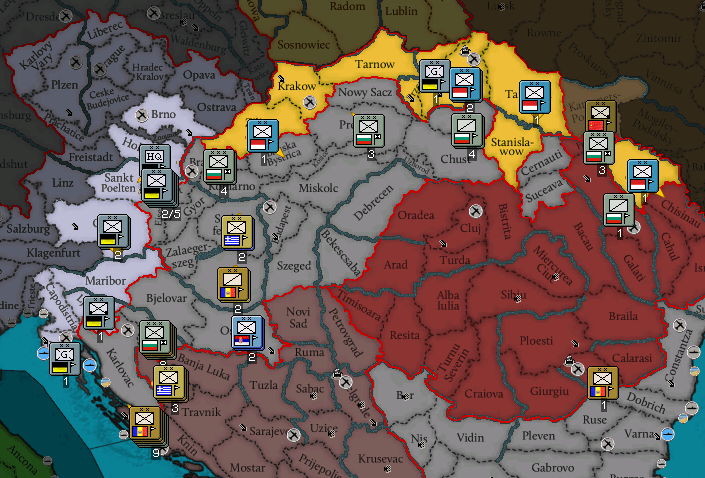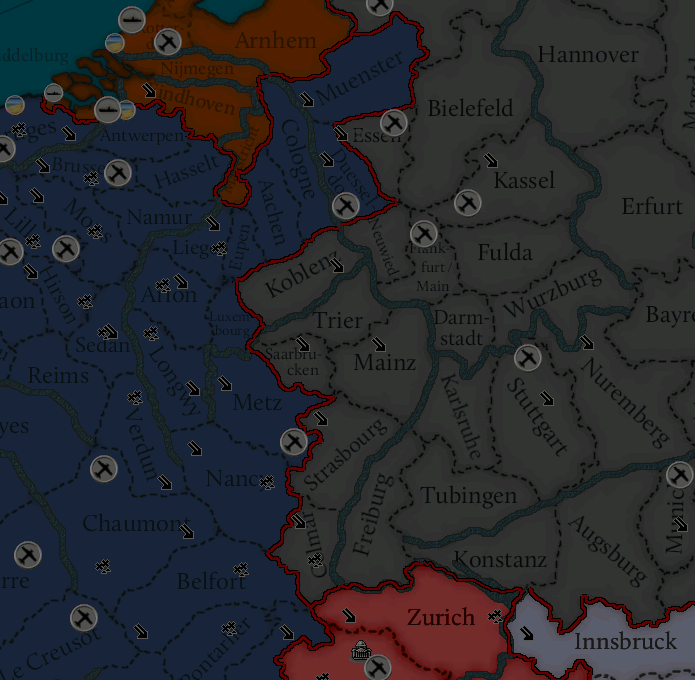Kiosevanov: “Yes. Terms.” He paused for a moment. Letting the words gather and rearrange in his tongue. He approached the conversation cautiously “His Majesty demanded two things from us, in exchange for my position of being the Premier. Number one: That we are in perfect understanding that Bulgaria will declare war against the Ottomans if war between the Arabs and the Turks happen, and we will when it is convenient to declare war. Number two: His Majesty desired not just Thracia along with Constantinople, he also desired Anatolia.”
Now that is something.
Kiosevanov: “I do not understand completely until after the war. But from our past reasoning, we had a good idea that it is this Byzantine dream that his father had. It’s fair to say that Anatolia has always been part of Romania. Only taking Constantinople will allow the Turks to rest and retaliate, perhaps with German support the next time. To him, taking only Thracia will be a half-arse effort on his grandiose project”
Kiosevanov: “The suppression of a Turkish nation-state was also part of the plan. Taking the City? No problem. We have a bigger army and navy after the Treaty of Jerusalem, and we can handle the Turkish minority there. Taking Smyrna for the Greeks? That’s possible, I suppose. But to take Ankara and the rest? Hooo. That’s just asking for trouble, but the Tsar insisted.”
------------------------------------------------
During the war, Bulgaria was merely an associated partner with the Axis alliance. Connections were made on both sides when Bulgaria entered the war. Diplomatic relations soared with the capture of Istanbul and the drive into Anatolia. The Bulgarian breakthrough in Anatolia and the capture of Turkish homelands wrecked the Turkish Empire’s chance of winning the war against the Axis; who were visibly struggling against the armies of the Sultan.
The Turkish military government, before the surrender, have made arrangements with the Germans on the transportation of the Ottoman family. The Germans have sent a cruiser to Cyprus and made a journey to Malta with a stop-over at Crete. There, the Germans have placed the royal family temporarily before their eventual return to their empire.
The Germans have requested to send their representative to Jerusalem. The Bulgarians have considered the request. The Germans were still their friends, but the Axis members were very hesitant. The Axis did not want any German meddling when the claimed lands were for the taking. The Germans took this as a major slight, especially from the Bulgarians, whom they regarded as one of their good ally.
The members of the conference do not want to give more time to the Ottoman family and their Germans benefactors: they have gone straight to the point. The conference unanimously decided that the Ottoman Empire will cease to exist; all titles and rights and privileges of the Ottoman Dynasty and their nobility will be withdrawn.
The lands of the Ottomans will be divided between the four victorious countries: Egypt, the main aggressor will receive the Sinai, Palestine (with Jordan), and Syria; the Hashemite Arabia receives all lands not claimed by Egypt from the Red Sea to the Persian Gulf, from their pre-war borders to the River Euphrates; Persia receives Hakkari from the north down to the River Euphrates, and push left towards Mosul and El-Hillah.
The Tsar claimed the rest of the lands including all the Aegean islands. The Tsar then proposed to create the Tsardom of Anatolia, the Empire of Romania, and the establishment of the Kingdom of Armenia from the Bulgarian share of lands. The Arabs, however, don’t have much to say. Bulgaria can do whatever it likes on those lands whether they agree or disagree, as the Bulgarians currently control portions of their claims. The resurrection of Romania raised their brows, but they find no good reason to oppose the Tsar.
To finalise the pie-slicing, all side of the negotiation have confirm or re-confirm their recognition of the others’ claims. Egypt and the Hashemites received their share as agreed with the Cairo Congress, and Persia’s gains were based on the Tehran meeting with the Arabs; all three sides’ claims were recognised by Bulgaria. Bulgaria’s land claims, the Tsar’s creation of Romania and Anatolia, and the independence of Armenia were recognised in return by the three Axis powers.
To keep Jerusalem from cracking, the conference has also promised to stamp out any Turkish and Kurdish nationalism, and prohibited themselves from supporting it. The former is targeted to Bulgaria and Persia, while the latter is to the Arab states. The Axis powers also promise no recognition on any other Armenia - Menshevik-controlled Armenia in particular.
The Mensheviks in Georgia (or Transcaucasia as they call it) conquered Armenia.
They are now at war against the Cossacks in the north.
In addition, Egypt promised privileges on Christian pilgrims within the Bulgarian tsardom (plus her sister tsardoms). Special travel and resident permits will be issued to these certain pilgrims that will be effective along the designated Jaffa-Jerusalem zone.
Bulgaria is now the de-facto Christian representative in the Holy Lands, not Russia.
This was achieved without storming the Holy City like in the ancient times
The Arabs also promised to help the Persians with the war effort against the Turkmens. The Bulgarians, being outside the Axis alliance, was spared from making the same promise. Instead, they pledge diplomatic support and will close down any relations with the Turkmens (if they have any in the first place).
Thus concludes the Treaty of Jerusalem. After the historic signing of the treaty, the Tsar visited the Church of the Resurrection (aka Church of the Holy Sepulchre) with all the political and military higher-ups. The news spread all over the tsardoms. The Treaty of Jerusalem have concerned Berlin on losing an ally, and have another ally becoming too powerful and too wily for its own good. However, finishing the war against the Syndicalists is a more pressing concern. As for the Ottoman family, they continue with their official statement that they shall return back to their lands they rightfully own.
Ottoman Coat of Arms
------------------------------------------------
The victorious Tsar was welcomed home with huge crowds of his adoring subjects watching the Tsar and his personal cavalry squadron trots through the victory parade. A victory feast was held, and decorations were given away to distinguished officers and soldiers. His exploits were spelled out on the papers; the march into Tsarigrad, and Operation Tervel – the drive towards Basrah and the capture of Baghdad. The Tsar was unassailable. With this power he has gathered, he put the Jerusalem Treaty into work.
Vastanovyavane na Rimska imperiya
(Restoration of the Roman Empire)
The old empire known as the (Eastern) Roman Empire was revived. A state that was long dead for nearly five centuries. The Tsar went to Constantinople and was crowned
Imperator na Rimska imperiya by the Patriarch himself. A parade was held both in Tsarigrad and in Sofia. Many common people, both in Bulgaria and in the sister tsardoms saw it as appropriate; the expulsion of the Turkish from the mainland and the City then the restoration of the Empire was a natural and rightful path. Many advocates within the government and the church have proclaimed it as the empire's third form: first, Latin; second, Greek; and now, Bulgarian. The Bulgarians were fortunate to have a convenient coincidence with the ordinal, third; as the phrase
the Third Empire both means the Third Bulgarian Empire and also the Third Roman Empire.
The Personal Cavalry Squadron accompanying the new emperor
But with all the celebrating and the festivities, resistance was made both in and outside the empire. The Axis nations were the first to recognise this empire and now address the Tsar as Imperator in their official letters and statements, but Europe didn't follow suit. The Syndicalists, of course, doesn't deal with reactionaries, Germany still holds the Ottoman family and refuse to recognise the new empire, Austria-Hungary mirrored German policy, North Italy (under control by a Hapsburg) copied Austria-Hungary, and Russia still holds the pretension that they are still the
Third Rome. Later on, the Entente decided to recognise the new empire as a political move to sway it away from Mitteleuropa. Most foreign news agents, particularly in the America and the Entente, addressed him as 'emperor' but called it the Bulgarian Empire.
Within the tsardoms, nationalists feared that the new empire would effectively put them into complete submission. The restrictions and the Bulgarian tsar as their head of state would only mean that these countries are under personal union of the Saxe-Coburg-Gotha king rather than subordinate to the Bulgarian state itself. The new Imperial government freshly made in Tsarigrad is a grave threat as the main power of the empire is that the boundaries included all tsardoms under His Majesty’s control. Therefore, Bulgaria, Rumania, Serbia, Greece, and Anatolia are all part of the empireand the Imperial government then can impose its will on all the subjects within the empire. In contrary with the previous arrangement, the tsardoms are legally equal to each other with Tsar Boris as their king. They held no illusions; Tsarigrad would be a mere extension of the Bulgarian state.
Out of all the tsardoms, the Greeks took more offence than the others. It is
them that are the successors of the empire, it is
them that should own Constantinople. The only compensation that they could get is Smyrna and the Aegean islands, and privilege access on resettling within the Imperial district.
Surprisingly, some figures in Sofia are also wary of the Tsar's power in Tsarigrad. While the Tsar is restricted by the constitution and the political landscape in Sofia, Tsarigrad is an open flat field where His Majesty can mould it to his liking. However, these fears from Sofia didn't appear in reality. The “Empire” only consisted of Constantinople, Prusa, and Nicomedia. This area is known as the “Imperial District”. The
Imperator of Romania is technically a higher title, but the Imperial government does appeared to be an extension of the Bulgarian government in Sofia and relies solely on the Bulgarian army for security and to keep the tsardoms in line.
Tsarigrad: under Bulgarian control at last.
Queen of Cities. Heart of the new Empire.
------------------------------------------------
On other agendas of the Jerusalem Treaty, the so-called 'Tsardom of Anatolia' would be created and also subordinate to the empire. Based in Ankyra (renaming of the cities continue), the Bulgarians realised that a nation of sort should be made. The original name,
Turcia was immediately rejected. Many in Sofia were pessimistic on this endeavour; swallowing such a large kingdom and assimilate it into Bulgarian language and customs. The government in Ankyra were made up of Orthodox individuals, Bulgarians from the mainland and Greek minorities in particular. The Tsar still insists on controlling and the Bulgarification of Anatolia and the Imperial District.
Farther to the east, the Kingdom of Armenia was established with a new provisional government placed in Gaziantep. It was made up of exiles from Beria's Armenia eagerly waiting for their return to their homeland. The new kingdom was created based on the negotiations conducted after Jerusalem. The claims were deemed ridiculous by some in the Bulgarian side, but practicality won in the end. Armenia would be their buffer state in the east, and the less lands given to Anatolia, the better.
Rightful Armenia proposed by the exiles
Left/Maroon: Tsardom of Anatolia
Right/Grey: Kingdom of Armenia under Bulgarian temporary protection
------------------------------------------------
Expansion of the Third Bulgarian Empire
Vienna wasn't blind nor deaf the entire time. They were watching the war against the Ottomans the entire time, and worried with a strong Bulgaria with the establishment of the Third Empire. Vienna sent a team to Albania to propose an alliance against the Bulgarian Empire. The Bulgarians acted fast. They have assembled an army at the border, ready to strike. War was declared soon enough. The Bulgarian cavalries attack to the north and south of Tirana to close down any escape routes while the Imperator's cavalry and the rest of the army assaults the city.
Shkoder and Pristina was given to Serbia, Korce (northern Epirus) was given to Greece, and the rest was annexed to Bulgaria. For the first time since the ancient times, the country now borders the three seas; the Black Sea, the Aegean Sea, and the Adriatic Sea. It is not a Bulgarian Empire if it doesn't!
After the stick, Tsar Boris (or rather Imperator Boris) then start to throw his weight on the sister tsardoms with the carrot. Knowing that these tsardoms have claims outside the empire, the Imperator took advantage of that to gain political loyalties within the non-Bulgarian tsardoms and expand the Bulgarian empire's boundaries at the same time.
Rumania was the first to receive this promise. Moldova and the Transylvanian lands all the way to the River Tizsa was promised to them. The Rumanians immediately replied with positive reaction. All that in exchange for Dobrich, Constantza, and Sulina was a good bargain for them.
Serbia was next. They were less eager than the Rumanians; losing the lands beyond the Great Morava River with the promise of taking the rest of Greater Serbia. The Serbians still took it with positive reaction.
Tsardom of Greece is now the most aloof of the three, due to the recent unfolding events. Sofia tried to fix the dropping relations between the two tsardoms by giving them the Aegean islands, including Cyprus, and the province of Smyrna. They were then promised Crete and the Ionian islands. Relations have warmed up just enough, however, the Greeks are pessimistic on taking the client state, Crete, from their German masters.
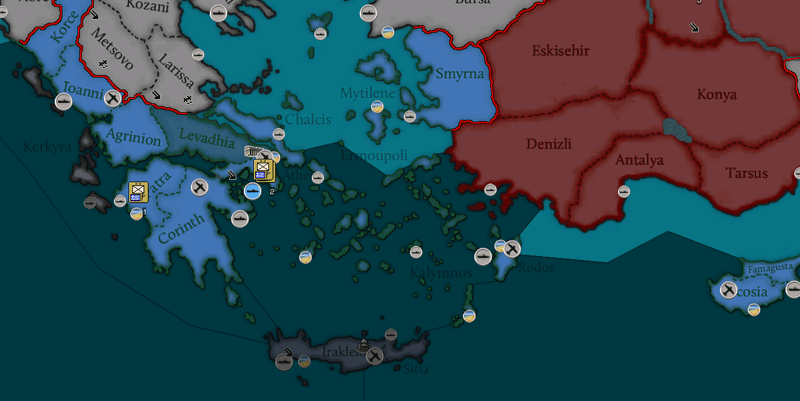
The Imperator's trip to the sister tsardoms was considered as a diplomatic coup. The Bulgarian Empire was consolidated enough with a single stroke. Imperator Boris remained untouchable within the Empire: but within the Bulgarian leadership, there are doubts on the so-called “diplomatic master stroke” penned by the press. With the exception of Moldova - under Ukrainian control, the claimed lands are under either Austria-Hungary or Germany's control, most of them are from the former. There are only two options the Imperator can take: he, either, let his iron promises rust, ruining his reputation and control of the empire; or to wage war against the Empire of Austria-Hungary sooner or later to fulfil the promises. Both options are unfortunate.
Albania is now gone. Vienna became more worried on its now strong and aggressive neighbour. Berlin is still at war with the Syndicalists. The dual kingdom hoped that the Bulgarians are now satisfied with their conquests.
------------------------------------------------
-------------------------------------------------------------------------
Never got the chance to continue the AAR. I'm very busy RL. Now, I can continue, and hopefully finish this AAR soon.

